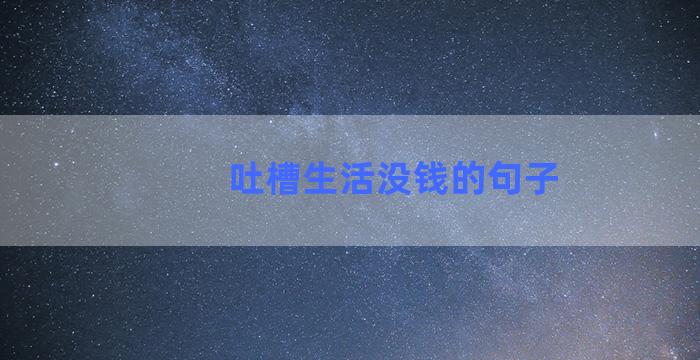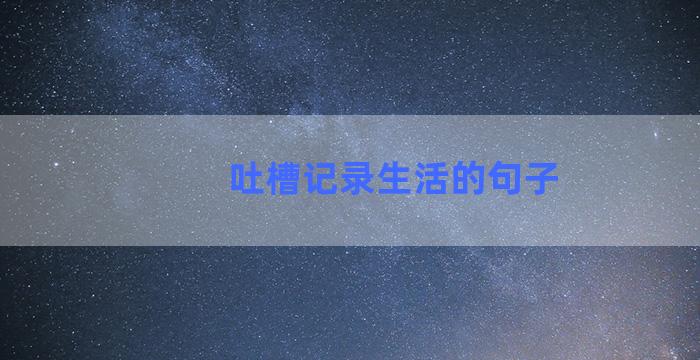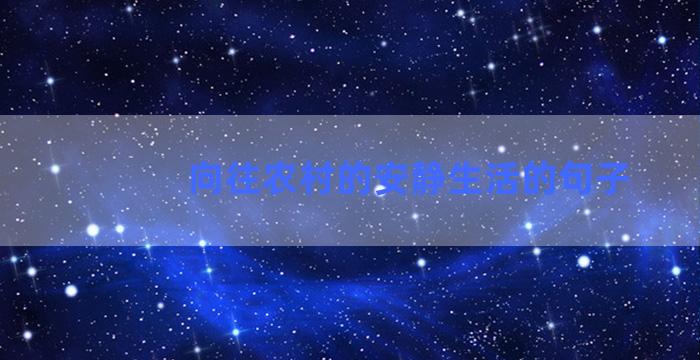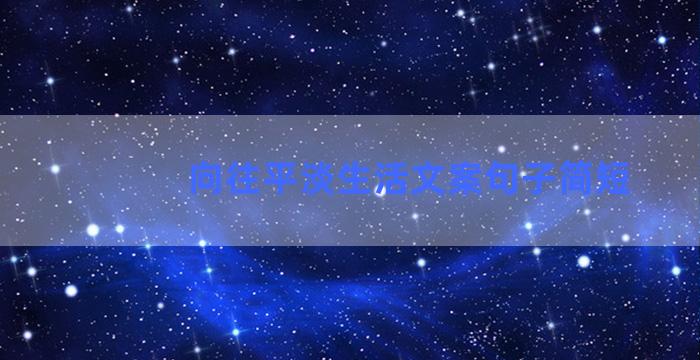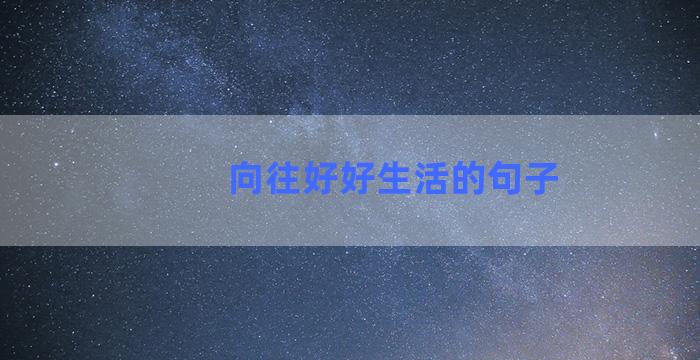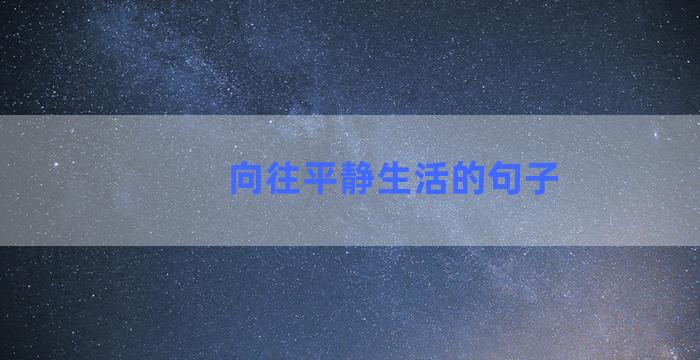感叹最近生活的句子英语

大家好,如果您还对感叹最近生活的句子英语不太了解,没有关系,今天就由本站为大家分享感叹最近生活的句子英语的知识,包括感叹时光流逝的英文句子的问题都会给大家分析到,还望可以解决大家的问题,下面我们就开始吧!
本文目录
[One]、日常生活中的英语句子
对众多英语专业自考生来说,英语口语较难攻克。下面我就分享日常生活中的英语句子给你们。
说实话…… As a matter of fact,...
Who won the golf tournament?(那场高尔夫球比赛谁赢了?)
Well, as a matter of fact, I did.(其实,是我赢了。)
= Truthfully,...(老实说……)
= In all actuality,...(实际上,……)正式的说法。
别告诉任何人。 Don't tell anyone.
Don't tell anyone.(别告诉任何人。)
= Keep it under your hat.一种惯用说法。
我有件事要坦白。 I have a confession.
confession“坦白”、“告白”、“供认”。
= I have something to confess.
= I need to tell you something.(我有事必须告诉你。)
= I have a confession to make.
我有一个秘密。 I have a secret.
我把一切告诉你。 I'll fill you in.
fill...in“填满……”、“把……装满”。
So, what happened to my father?(那,我父亲出了什么事情?)
I'll fill you in.(我把一切告诉你。)
= I'll tell you all about it.
= I'll explain everything.
= I'll tell you all the details.
我就直说吧。 I'll level with you.
level表示“把……弄平”,但在这儿表示“说话不拐弯,直说”。
Quit lying to me!(不要对我说谎话。)
All right. I'll level with you.(好吧,我就直说吧。)
= I'll be open and sincere with you.
= I'll tell you the truth.(我告诉你真相。)
我知道的大概就是这些。 That is about all I know.
What else do you know?(其他你还知道些什么?)
That is about all I know.(我知道的大概就是这些。)
= I don't know anything else about it.
我们关起门来在这儿说。/我们私下里说。 This is just between you and me.
比较轻松的说法。直译为“你我俩人之间的事”。
This is just between you and me.(我们关起门来在这儿说。/咱们俩私下里说。)
= Let's keep our talk between us.
= Let's keep this our little secret.
这是一个秘密。 It's a secret.
我告诉你一个秘密。 Let me tell you a secret.
他不能保守秘密。 He can't keep a secret.
你的嘴不严。 You've got a big mouth!
我不敢对我的老板说。 I don't have the guts to say that to my boss.
听小道消息说。 A little bird told me.
说不清楚是从哪儿听来的,或者不愿意说出是从谁那儿听来的情况下使用。
A little bird told me that today is your birthday.(听说今天是你的生日。)
Wait. Who told you?(喂!谁告诉你的?)
= I heard it through the grapevine.
grapevine原意为“葡萄藤,葡萄属植物”,这里表示“谣言,传闻”。比较常用。
我什么都没说。 I didn't say anything.
= I didn't let the cat out of the bag.
表示“没有泄露秘密”的固定说法。
无意中说漏了嘴。 It was a slip of the tongue.
It was a slip of the tongue.(无意中说漏了嘴。)
Really? Didn't she know about it?(真的吗?难道她不知道?)
= I spilled the beans.(我泄露了秘密。)
= I stuck my foot in my mouth.(我把不好/失礼的事说出去了。)
我一个字都不说出去。 I won't say a word.
用来表示“保证对谁都不说出去”。
Mum's the word.(我什么都不说。)
= I won't say anything.(我什么都不说。)
= My lips are sealed.(我的嘴很紧。)
You can't tell anyone.(你不能告诉任何人。)
I promise I won't.(知道,我保证。)
我不能保证。I can't promise.
“不能保证,但可以试试”。表达想帮助对方的心情。
I'll try but I can't promise.(我争取去,但不能保证。)
Remember to bring the report.(记住带上你的报告。)
I'm not sure.(我没有把握。)
说到就得做到。 A promise is a promise!
I'm sorry I can't help you.(对不起,我帮不了你。)
You said you would. A promise is a promise!(你说过你可以,说到就得做到。)
You promised!(你不是答应我了吗!)
You can't go back on your promise now!(你现在不能食言。)
这是什么味儿? What's that smell?
What's that smell?(这是什么味儿?)
Oh, no! Something's burning.(噢,不好!是什么糊了吧。)
= I wonder what that smell is?
= I wonder where that smell is coming from?
什么声音? What's that noise?
What's that noise?(什么声音?)
It's my alarm clock.(是我的闹钟的声音。)
这是排什么的队? What is this line for?
What is this line for?(这是排什么的队?)
I have no idea.(我也不知道。)
Why are people lined up?(人们为什么排队?)
打什么鬼主意呢?(你忙什么呢?) What are you up to?
up to“就某事有……企图”、“打……的坏主意”、“从事……”。
What are you up to tonight?(你今天晚上忙什么?)
Why should I tell you?(我干吗非得告诉你不可?)
What's going on?(是什么呀?)
我可以问一个问题吗? May I ask you a question?
May I ask you a question?(我可以问一个问题吗?)
Sure, what is it?(当然,什么问题?)
“drowsy”是什么意思? What does“drowsy” mean?
What does“drowsy” mean?(“drowsy”是什么意思?)
It means“sleepy.”(“drowsy”表示“犯困”。)
这是什么? What's this? What's this?(这是什么?)
It's a foldable bed.(这是折叠床。)
这是谁的? Who does this belong to?
That's my car.(那是我的车。)
这叫什么? What's it called?
What's it called?(这叫什么?)
It's called tempura.(这叫“天麸罗”。)
这是什么礼物? What did you get for me?
这种说法不只限于送礼物时。还有“你给我买什么了?”、“你给我带什么来了?”等的语感。
What did you get for me?(是什么礼物?)
I got you a doll.(我给你买了一个娃娃。)
去哪儿呀? Where are you headed?
Where are you headed?(去哪儿?)
“隔几分钟来一趟车”或者“隔多长时间打一次网球”等用于询问时间的间隔时。
How often should I take this medicine?(这药一天吃几次?)
U.S.A.是什么的缩写? What does USA stand for?
What does USA stand for?(U.S.A.是什么的缩写?)
It stands for the United States of America.(它是United States of America的缩写。)
询问距离、尺寸时间的长短,听到这样的提问,对方以具体数字回答。
How long have you dated her?(你和她交往了多长时间?)
About four years.(大概4年吧。)
How long is her hair?(她的头发有多长?)
Very long.(很长。)不能用具体数字回答时,也可以用类似very long这样的话来回答。
How early should we leave?(咱们多早出发合适?)
Let's leave at 7∶30 am.(早晨7∶30吧。)用How表示问“多……”的说法还有以下几种。
How slowly?([速度、动作]多慢?)
暑假什么时候开始? When does summer break start?
When does summer break start?(暑假什么时候开始?)
开学典礼是哪天? When was the opening ceremony?
When was the opening ceremony?(开学典礼是哪天?)
你知道这个生词的意思吗? Do you know the meaning of this word?
这个词怎么发音? How do you pronounce this word?
How do you pronounce this word?(这个词怎么发音?)
A和B之间有什么区别? What's the difference between A and B?
What's the difference between A and B?(A和B之间有什么区别?)
They're about the same.(它们几乎相同。)
我很高兴/幸福。 I'm happy.
How's your new home?(新家怎么样?)
I'm ecstatic.(我高兴得忘乎所以了。)希望进一步强调心情非常激动的感觉时。
I'm thrilled.(我太激动了。)
我高兴极了。 I'm so happy.
I feel so happy.(我非常高兴。)
I'm in heaven.(我好像到了天堂。)
Oh, boy!表示高兴、惊喜的同时,也表示稍觉为难的心情。注意,没有Oh, girl!的说法。
We're going camping next week.(下星期我们去宿营。)
I lost my keys!(我把钥匙丢了。)
表示高兴、惊喜、赞叹。“啊”。
Look at the view!(看那边的景色!)
Wow! It's great.(哇!太漂亮了!)
表示同意、赞成。比Yes要随便、粗鲁。
School is canceled today.(今天学校放假!)
孩子用来表示幸福的词,如果大人使用,听上去含有讽刺的意味。
We're going to Disneyland!(我们要去迪斯尼乐园了。)
He got the promotion.(他升官了。)
听到这消息我很高兴。 I'm glad to hear it.
= I'm relieved to hear that.(听了那个消息,我就放心了。)
谢天谢地…… I'm glad that...
I'm glad that the exams are over.(谢天谢地考完了。)
感觉好极了。 I feel like a million dollars.
我从没有这么高兴过。 I've never been this happy.
= I've never been as happy as I am now.
= This is the happiest moment in my life.
= This is the best moment of my life.
真是个好消息。 That's good news.
I heard John got married.(我听说约翰结婚了。)
That's good news.(真是个好消息。)
Let's go dancing.(我们去跳舞吧。)
It's a nice day!(今天的天气真好!)
= I feel terrific!进一步强调“舒服”的说法。
我今天的心情很好。 I'm in a good mood today.
The boss is in a good mood.(老板的心情很好。)
I'm in a bad mood today.(我今天心情不好。)
我期待着今年的夏天。 I'm looking forward to this summer.
Do you have any plans?(有什么打算吗?)
I can hardly wait until this summer.(我都等不及到夏天了。)口语化的说法。
I'm looking forward to seeing you.(我期待着能见到您。)
今天你看上去很高兴啊! You look happy today.
Yes. I got a raise.(是呀,我涨工资了。)
= You seem really happy today.
高兴得飘飘欲仙。 I'm walking on air.
直译是“在天上走”,表达仿佛登上了天似的极其高兴的心情。
我高兴得跳了起来。 I jumped for joy.
这简直不敢让人相信。 This is too good to be true.
We're having a baby.(我们有孩子了!)
This is too good to be true.(这简直让人不敢相信。)
It's unbelievable.(这无法让人相信。)
没有比这更让人高兴的了。 Nothing could be more wonderful.
= Nothing would please me more.
你使我感觉到了幸福。 You made me happy.
Did you receive my birthday card?(你收到我给你的生日贺卡了吗?)
Yes, you made me happy. Thank you.(收到了,我太幸福了。谢谢。)
用来表现自己“成功了!”、“达到某个目标”时。如果是对对方说时用You did it!。
Did you pass the exam?(考试通过了吗?)
I've got a new job!(我找到了一个新工作。)
I won the lottery!(我**了。)
今天的运气真好。 I lucked out today.
Didn't that policeman give you a ticket?(那个警察没给你开违反交规的罚单吗?)
No, he didn't. I lucked out today.(没有,我今天的运气可真好。)
你真走运。 It's your lucky day.
I found$10.00 on the street.(我在街上拣了10美元。)
It's your lucky day.(你真走运。)
That's fortunate.(真有好运气。)
感谢上帝!/谢天谢地。 Thank heavens!
heaven是____所说的“天堂”,即“神和天使住的地方”。直译为“感谢天堂里的神”。
We didn't crash.(我们差点撞上。)
我中头彩了! I hit the jackpot!
原意是**博时赢得很多钱。一般用于“中了头彩”、“获得巨大成功”时。
= I struck it rich!(我发了笔横财。)
这句是从“挖到富矿”派生出来的一种表达方式。struck是strike的过去式。
只是运气好。 I was just lucky.
用just或pure强调“只是运气好而已”。
美梦成真! It's a dream come true!
Mike got a raise!(迈克加薪了!)
Talk about luck!(他可真走运!)
= Things are really going my way!
What is a good gift for Tracy?(送特蕾西什么礼物好呢?)
This is just what I was looking for.(这正是我要找的。)
就这么定了。 It's settled!
Why don't we go to New York?(我们干吗不去纽约呀?)
It's settled!(是呀!就这么定了。)
听到对方的建议后表达自己同意的意见时。
Let's go dancing tonight!(今天晚上去跳舞吧!)
看到什么人或什么物,发出“真棒”的感叹时。
Look at that salad bar.(你看那个沙拉长条桌。)
啊!可以松口气了! What a relief!
I passed! What a relief.(我通过了,总算可以松口气了。)
That's a relief!(总算放心了。)
= Everything worked out well.(所有的事都解决好了。)
= I'm relieved.(我总算可以松口气了。)
因意想不到的事情使得情况发生突然的变化,而使人吃惊、吓了一跳时。
I'm surprised!(吓我一跳!)
好了!这下放心了!/唷-!(吹口哨的声音。) Whew!
表示终于可以回避问题,松一口气的心情。发音就如同吹口哨一样。
表示心情放松、高兴和叹息,一般只用于自言自语。
听这么一说,我就放心了。 I felt relieved to hear that.
relieve可以表示放下心来、安心的心情。
Did you hear that the meeting went well?(你听说了吗?那个会开得很顺利。)
Yes, I felt relieved to hear that.(听说了,这么一来我就放心了。)
= I was relieved to hear that.
= I felt much better after hearing that.
终于到了。 Here we are at last.
Here we are.是固定短语,表示“到了”。
Here we are at last.(终于到了。)
Home sweet home.(还是自己的家好!)
riddance表示“摆脱烦恼、麻烦”。
He finally left.(他终于回去了。)
Good riddance.(太好了,他可算走了。)
= I'm glad they're gone.
[Two]、感叹时光流逝的英文句子
关于时光流逝的英文诗句 1.外国描写时光流逝的语句
抛弃时间的人,时间也抛弃他。——莎士比亚
你热爱生命吗?那就别浪费时间,因为时间是组成生命的材料。——富兰克林
世界上最快而又最慢,最长而又最短,最平凡而又最珍贵,最易被忽视而又最令人后悔的就是时间。——高尔基
必须记住我们学习的时间是有限的。时间有限,不只是由于人生短促,更由于人事纷繁。我们应该力求把我们所有的时间用去做最有益的事情。——斯宾塞
一个人越知道时间的价值,越倍觉失时的痛苦呀!——但丁
荒废时间等于荒废生命。(川端康成)
在所有的批评家中,最伟大、最正确、最天才的是时间。(别林斯基)
要找出时间来考虑一下,一天中做了什么,是正号还是负号。(季米特洛夫)
世界上最快而又最慢,最长而又最短,最平凡而又最珍贵,最易被忽视而又最令人后悔的就是时间。(高尔基)
时间是世界上一切成就的土壤。时间给空想者痛苦,给创造者幸福。--麦金西
时间就是能力等等发展的地盘。--马克思
忘掉今天的人将被明天忘掉。--歌德
辛勤的蜜蜂永没有时间的悲哀。--布莱克
没有方法能使时钏为我敲已过去了的钟点。--拜伦
时间最不偏私,给任何人都是二〖Fourteen〗、小时;时间也是偏私,给任何人都不是二〖Fourteen〗、小时。--赫胥黎
任何节约归根到底是时间的节约。--马克思
人的全部本领无非是耐心和时间的混合物。--巴尔扎克
时间是一个伟大的作者,它会给每个人写出完美的结局来。--卓别林
2.求一些形容时间流逝的唯美诗句
时间,它既看不见,又摸不着,但却又实实在在地在人们身边无情而匆匆地流逝。
古代诗歌,尤其是唐宋诗歌中大凡写“水”便是写时间或言愁。例如:“子在川上曰,逝者如斯夫。”
李白“黄河之水天上来,奔流到海不复还”,王之涣“白日依山尽,黄河入海流”等等,无不是借助奔流不息的河海之水抒写面对时间流逝的一种焦灼。时间本来就存在,每个人都生活在时间里,只是许多的人经常忘了时间的存在罢了,所以人们才会对流逝的时间感到不可思议,所以才会有诸如“百川东到海,何时复西归”这样感叹时光流逝的诗句。
古今中外关于写时间流逝的诗句是很多的:晏殊的《浣溪纱》:?????????一曲新词酒一杯,去年天气旧亭台。夕阳西下几时回??????????无可奈何花落去,似曾相识燕归来。
小园香径独徘徊。宣州谢佻楼饯别校书叔云(李白)弃我去者,昨日之日不可留。
乱我心者,今日之日多烦忧!长风万里送秋雁,对此可以酣高楼。蓬莱文章建安骨,中间小谢又清发。
俱怀逸兴壮思飞,欲上青天览明月。抽刀断水水更流,举杯销愁愁更愁。
人生在世不称意,明朝散发弄扁舟。谒山(李商隐)从来系日乏长绳,水去云回恨不胜。
欲就麻姑买沧海,一杯春露冷如冰。临江仙杨慎滚滚长江东逝水,浪花淘尽英雄。
是非成败转头空。青山依旧在,几度夕阳红。
白发渔樵江渚上,惯看秋月春风。一壶浊酒喜相逢。
古今多少事,都付笑谈中。李煜词《乌夜啼》:林花谢了春红。
几时重?自是人生长恨水长东。王勃卷55_12「滕王阁」滕王高阁临江渚,佩玉鸣鸾罢歌舞。
画栋朝飞南浦云,珠帘暮卷西山雨。闲云潭影日悠悠,物换星移几度秋。
阁中帝子今何在,槛外长江空自流。盛年不重来,一日难再晨,及时宜自勉,岁月不待人。
——陶潜君不见,黄河之水天下来,奔流到海不复回。君不见,高堂明镜悲白发,朝如青丝暮成雪。
——李白天地者,万物之连旅;光阴者,万代之过客。——李白“人生在世,如白驹过隙,忽然而已。”
——庄子年年岁岁花相似,岁岁年年人不同。——刘希夷光阴似箭催人老,日月如移越少年。
——高明逝者如斯夫,不舍昼夜。——孔丘明日复明日,明日何其多,我生待明日,万事成蹉跎。
世人若被明日累,春去秋来老将至。朝看水东流,暮看日西坠。
百年明日能几何,请君听我明日歌。(文嘉《明日歌》)黄河走东溟,白日落西海,逝川与流光,飘忽不相待。
——李白花有重开的,人无再少年。——关汉卿洗手的时候,日子从水盒进而过去;吃饭的时候,日子从饭碗里过去。
我觉察他去的匆匆了,伸出手遮挽时,他又从遮挽着的手边过去;天黑时,我躺在床上,他便伶伶俐俐地从我身上跨过,从我的脚边飞去了。等我睁开眼和太阳再见,这算又溜走了一日。
我掩面叹息。但是新来的日子的影子又开始在叹息里闪过了。
——朱自清年华一去不复返,事业放弃再难成。——白郎宁最长的莫过于时间,因为它永远无穷尽,最短的也莫过于时间,因为我们所有的计划都来不及完成。
——伏尔泰 Lying in my bed I hear the clock tick, And think of you Turning in circles confusion-- Is nothing new Flashback to warm nights-- Almost left behind Suitcase of memories, Time after-- Sometimes you picture me-- I'm walking too far ahead You're calling to me, I can't hear What you have said-- And you say--go slow-- I've fall behind-- The second hand unwinds If you're lost you can look--and you will find me Time after time If you fall I will catch you--I'll be waiting Time after time If you fall I will catch you--I will be waiting Time after time Time after time After your picture fades and darkness has Turned to gray Watching through windows--I'm wondering If you're OK You say--go slow-- I fall behind-- The drum beats out of time-- If you're lost you can look--and you will find me Time after time If you fall I will catch you--I'll be waiting Time after time If you fall I will catch you--I will be waiting Time after time。
..上帝或许给我们不同的命运,但却给我们等速流逝的时间。"燕子去了,有再来的时候,杨柳枯了,有再青的时候,桃花谢了,有再开的时候,而我们的日子一去不复返."每个人都在自己天生的宿命与后天的努力中去品位时间,去铭刻岁月的痕迹。
我,也许也包括你,都已在岁月的流逝中,被生活磨练得圆滑。匆忙中,已不再有过多的感情在心底来来回回地反复歌唱,我们都已经愈变的成熟,我们的心已变得比我们的实际年龄还要老。
可是生命中曾经的纯真永远不会老,她会在某一天,猝不及防地以年轻的面孔出现于我的梦,我的记忆,她会一遍一遍地提醒我过去的岁月中存留的某一点遗憾,这遗憾搓磨着我的心,让我有了一种想重新来过的渴望。
只是过去的痛楚也要再重新来过吗?我不知道。
3.用英语翻译时光飞逝的所有表达方式
英语翻译时光飞逝的所有表达方式如下:
Light travels like an arrow, and time like a shuttle.光阴似箭,岁月如梭
Time and tide wait for no man.岁月不饶人
[Three]、急需30条有关于英语‘’感叹句"的句子,帮帮忙。谢谢!
先给你解释下感叹句吧,最后有例子:
what修饰名词或名词短语,有以下两种形式:
1. What+a(an)+(形容词)+单数可数名词+主语+谓语!或是:What+名词词组+主语+谓语!如:
What an apple this is! What a fine day it is!
2. What+(形容词)+可数名词复数或不可数名词+主语+谓语!
What kind women they are! What nice music it is!
how用来修饰形容词、副词或动词。其结构是:How+形容词(副词)+主语+谓语!
How hard the workers are working!
How quickly the boy is writing!
注意:当how修饰动词时,动词不跟着感叹词提到主语之前。
what与how引导的感叹句,一般情况下可以相互转换,转换后意义不变。如:
What an interesting story it is!==How interesting the story is!
what a beautiful building it is!==How beautiful the building is!
在口语中,感叹句的主语和谓语常常省略。如:
What a nice present!(省略it is)
How disappointed!(省略she is或其它可作本句主、谓的词语)
[One]、由"what"引导的感叹句:"what"意为"多么"用作定语,修饰名词(被强调部分),单数可数名词前要加不定冠词a/an,复数可数名词或不可数名词前不用冠词。这类句子的结构形式是:
what+(a/an)+adj.+n.+主语+谓语+(it is).
如:① What a clever girl she is!多么聪明的姑娘呀!
[Two]、由"how"引导的感叹句:"how"意为"多么",用作状语,修饰形容词或副词(被强调部分)。如果修饰形容词,则句中的谓语动词用系动词;如果how修饰副词,则句中的谓语动词用行为动词,这类句子的结构形式是:
How+adj.(adv.)+主语+谓语+(it is).
如: How cold it is today!今天多么冷呀!
[Three]、在表示同一意义时,英语感叹既可用"what"引导,也可用"how"引导。如:
What a hot day it is! How hot the day is!
[Four]、感叹句在表示激动强烈的感情时,口语中常常采用省略句,其后面的主语和谓语往往略去不讲。
如: What a fine day!多么晴朗的天呀!
⒈ What a beautiful picture Jill is drawing!/ How beautiful a picture Jillis drawing!
⒉ What a busy man Mr Wang is!/ How busy a man Mr Wang is!
⒊ How happy the cat is!/ What a happy cat it is!
⒋ How slowly the tractor is going!
⒍ What a wet day it is today!/ How wet a day it is today!
⒏ What a long time they waited!
⒐ What a large shirt he is wearing!/ How large a shirt he is wearing!
⒑ How happily the dolphin is playing!
1〖One〗、What a heavy rain it is!多大的一场雨啊!
1〖Two〗、What a great surprise it is!这多么令人惊奇啊!
1〖Three〗、What a rich breakfast it is!多么丰盛的一顿早餐啊!
1〖Four〗、How well you look!你气色真好!
1〖Five〗、How kind you are!你心肠真好!
1〖Six〗、How beautifully you sing!你唱得真好听!
1〖Seven〗、Strawberries! How nice!草莓!多好呀!
1〖Eight〗、How clever the boy is!这个男孩多么聪明啊!
1〖Nine〗、How fast he runs!他跑得多么快啊!
20、What a clever boy he is!他是多么聪明的孩子呀!
2〖One〗、What a good heart you have!你的心肠真好!
2〖Two〗、What an interesting book it is!这是多么有趣的书呀!
2〖Three〗、What a good time the children are having!孩子们玩得真高兴呀!
2〖Four〗、What clever boys they are!他们是多么聪明的孩子呀!
2〖Five〗、What beautiful flowers they are!这些花多么漂亮呀!
2〖Six〗、What bad news it is!这是多糟糕的消息呀!
2〖Nine〗、What a surprise!真是意想不到!
30、What fun we could have!我们玩得多开心啊!
3〖Four〗、What a thing to say!多么难听的话啊!
3〖Five〗、What a way to behave!举止多么不文明啊!
3〖Six〗、What a time to choose!怎么选了这么个时间!
3〖Seven〗、What a way to bring up a child!怎么用这种方法带孩子!
3〖Eight〗、What a mess we have made of everything!我们把一切事情都搞得多糟啊!
感叹最近生活的句子英语和感叹时光流逝的英文句子的问题分享结束啦,以上的文章解决了您的问题吗?欢迎您下次再来哦!
